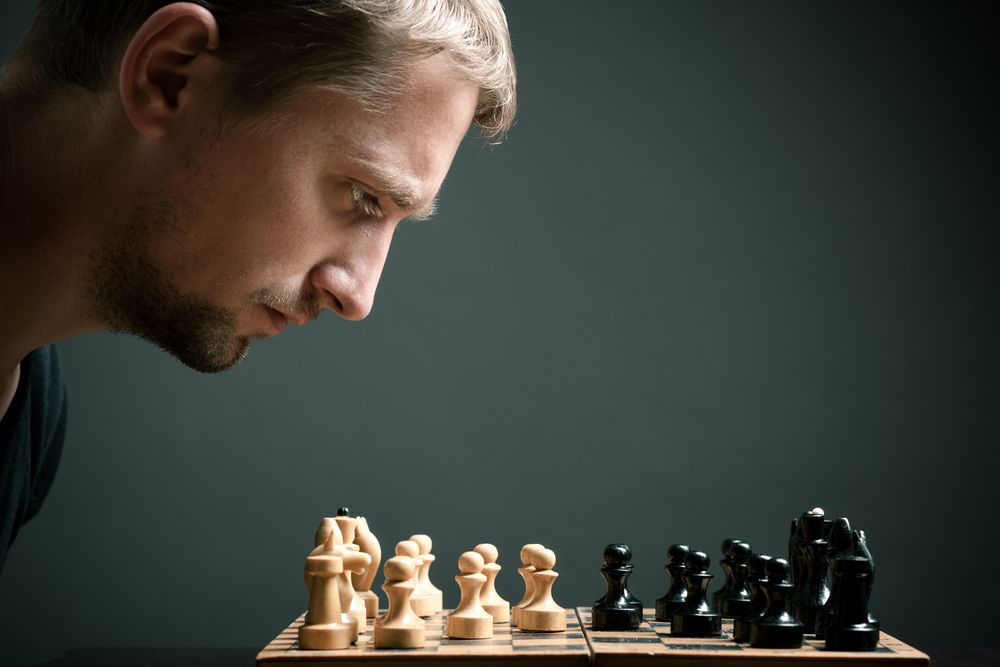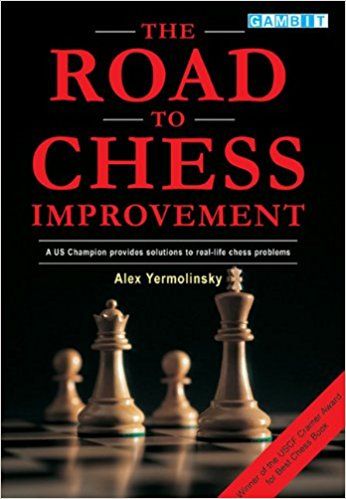
Why Study Chess?
Recently a chess player asked me a simple question: "I have no chess talent, so should I spend my time on reading chess books and studying chess games?"
I am sure that at some point (usually after a disappointing game or a tournament) many people have asked a similar question. In order to answer it, I need to split this question into two parts.
Let's start with the chess talent part. It is my deep belief, based on many years of personal experience, that it is much easier to determine if a person indeed has chess talent than the lack thereof. It was enough for me to talk just five minutes about chess with Kramnik, Ivanchuk, and Gelfand when they were 13-14 years old and I didn't have any doubts about their bright future.
However, as we established in this article, even the brightest chess talent is not a guarantee that a chess player will become a superstar. From the other side, in my opinion it is practically impossible to say for sure that a chess player has no chess talent. A good example is the legendary GM Leonid Stein, who was probably one of the brightest talents of his generation and yet he couldn't get his master title till his mid-twenties. He even seriously considered quitting chess! Fortunately, there were many people around Stein who encouraged him to continue. Regrettably, that is not always the case and just one stupid word can negatively affect a chess player's confidence and potentially even ruin his chess career.

Here is my story on the subject.
The year was 1983 and I was 14 years old, playing a junior team tournament in Ashgabat (Turkmenistan). In one of the games, where I was playing Black, my opponent sacrificed four pawns and lured my king to e5 in the middle of the game. To make things worse I was in huge time trouble and my flag was about to fall any second! I didn't have any doubt that either I was going to lose on time or simply get checkmated! When my opponent suddenly offered a draw I couldn't believe my ears and immediately agreed. Right after we shook our hands, my opponent informed me that my Ke5 was going to run into safety by Ke5-d6-c7-b8 and miraculously White couldn't stop it!
It turned out, he was absolutely correct! To add insult to the injury, the local newspaper reported the next day about the curious case where a young player Greg Serper from Uzbekistan agreed to a draw having five extra pawns (yes, they added one extra pawn to magnify the comic effect). Our team coach Larisa Pinchuk was a very smart person and besides she knew me very well, so she revealed that the famous Soviet coach Vladimir Zak saw the moment when I agreed for a draw.
He pointed at me and said: "This kid will never be a chess player." When I heard that I was really mad! I couldn't believe that anyone can judge a young boy's abilities based on just one stupid decision in horrible time trouble. I swore that I would do everything in my power to prove the old geezer wrong! It gave me the motivation and in some sense helped my chess career, but it could have been just opposite.
Here is what GM Yermolinsky writes about his childhood coach Vladimir Zak in the brilliant book The Road To Chess Improvement:
"We had a joke: anybody who survives the "training method" is guaranteed a bright future! The important thing was to leave Zak before frustration sets in and you decide to quit chess. Valery Salov and Gata Kamsky left early and became stars in their teens."

So, let me give you some advice. Don't let anyone question your chess talent! Your talent might be not as big and bright as Kasparov's, but believe me, you have some! It might be just hidden, so you'll need to dig deeper!
Now, let's discuss the second part of the question. Say you are too old to realistically hope to become a world champion or even a grandmaster. Or maybe chess is just a hobby for you and you don't have any big chess ambitions. Should you spend your time studying chess books and analyzing games? I am absolutely sure that you should! There are two reasons to work on chess.
First of all, most probably, as the result of such chess work you'll get stronger. Even if you don't have a goal to become a grandmaster or master, winning a game vs. your clubmate who is beating you on a regular basis will make you happy!
You can say that you don't play for ratings or results and the most important thing for you in chess is its beauty. Well, this is precisely why you need to study chess: to broaden your horizons of chess beauty. Let me explain this point.
When we first start learning chess, we can enjoy only the most basic chess situations, like this one:
The beautiful chess geometry where White's rooks cut off file after file and eventually checkmate the black king is very exciting for beginners. That's it; they cannot appreciate anything more complicated than this! But the more you study chess, the more you understand its beauty. Now you can enjoy the "immortal" or "evergreen" games.
As you get stronger, you can appreciate even more complicated concepts:
At some point you'll learn that beauty in chess is not all about those flashy sacrifices:
And you'll need to be at least USCF 1600 in order to understand why Spassky sacrificed a knight in the following famous game:
Or why Tal "wasted" time in the middle of his attack to push his h2 pawn:
Finally, you can call yourself a chess aficionado when you are able to see the immense beauty of these endgame ideas:
It is clear that the stronger you get, the more shades of chess beauty you can see!
The conclusion here is quite obvious: even if you don't care much about your rating or tournament results, by reading chess books and studying the games of great players you expand your chess knowledge and therefore enjoy chess more!






